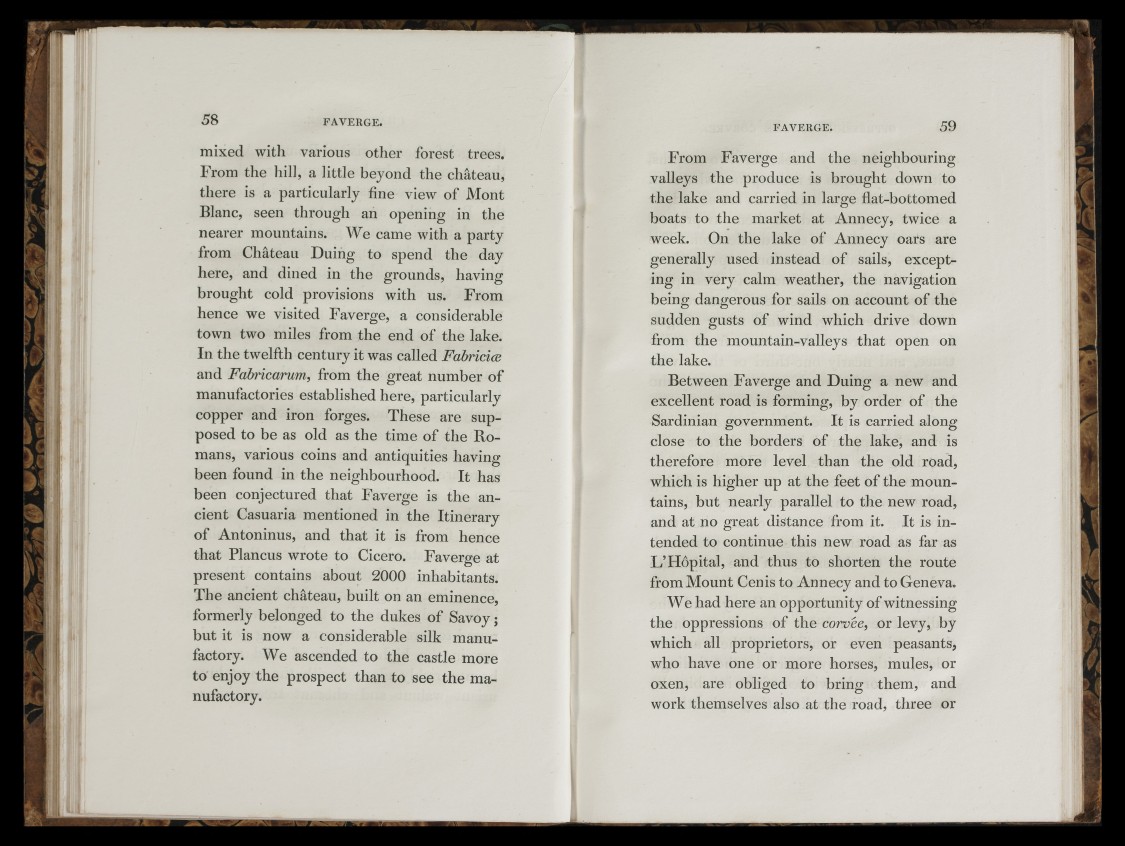
§
58 FAVERGE.
m
mixed with various other forest trees.
From the hill, a little beyond the chateau,
there is a particularly fine view of Mont
Blanc, seen through an opening in the
nearer mountains. We came with a party
from Château Duing to spend the day
here, and dined in the grounds, having
brought cold provisions with us. From
hence we visited Faverge, a considerable
town two miles from the end of the lake.
In the twelfth century it was called Fabriciæ
and Fabricarum, from the great number of
manufactories established here, particularly
copper and iron forges. These are supposed
to be as old as the time of the Romans,
various coins and antiquities having
been found in the neighbourhood. It has
been conjectured that Faverge is the ancient
Casuaria mentioned in the Itinerary
of Antoninus, and that it is from hence
that Plancus wrote to Cicero. Faverge at
present contains about 2000 inhabitants.
The ancient château, built on an eminence,
formerly belonged to the dukes of Savoy ;
but it is now a considerable silk manufactory.
We ascended to the castle more
to enjoy the prospect than to see the manufactory.
FAVERGE. 59
From Faverge and the neighbouring
valleys the produce is brought down to
the lake and carried in large flat-bottomed
boats to the market at Annecy, twice a
week. On the lake of Annecy oars are
generally used instead of sails, excepting
in very calm weather, the navigation
being dangerous for sails on account of the
sudden gusts of wind which drive down
from the mountain-valleys that open on
the lake.
Between Faverge and Duing a new and
excellent road is forming, by order of the
Sardinian government. It is carried along
close to the borders of the lake, and is
therefore more level than the old road,
which is higher up at the feet of the mountains,
but nearly parallel to the new road,
and at no great distance from it. It is intended
to continue this new road as far as
L ’Hôpital, and thus to shorten the route
from Mount Cenis to Annecy and to Geneva.
We had here an opportunity of witnessing
the oppressions of the corvee, or levy, by
which all proprietors, or even peasants,
who have one or more horses, mules, or
oxen, are obliged to bring them, and
work themselves also at the road, three or